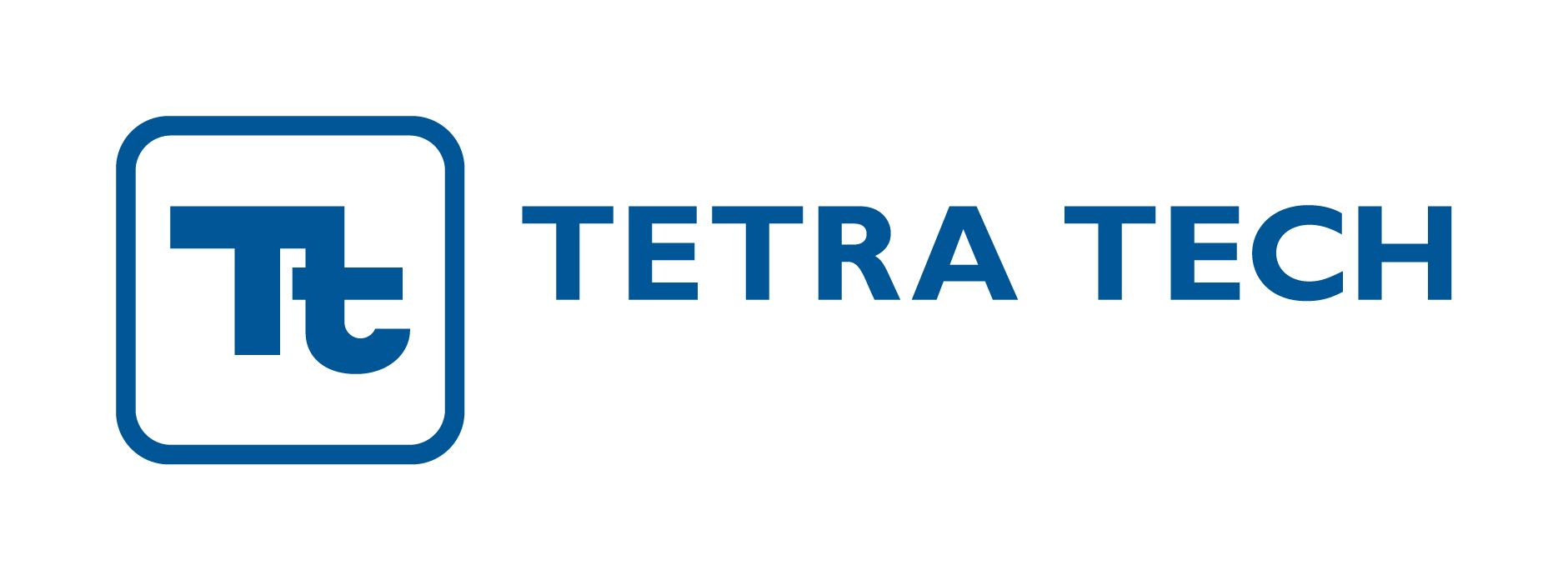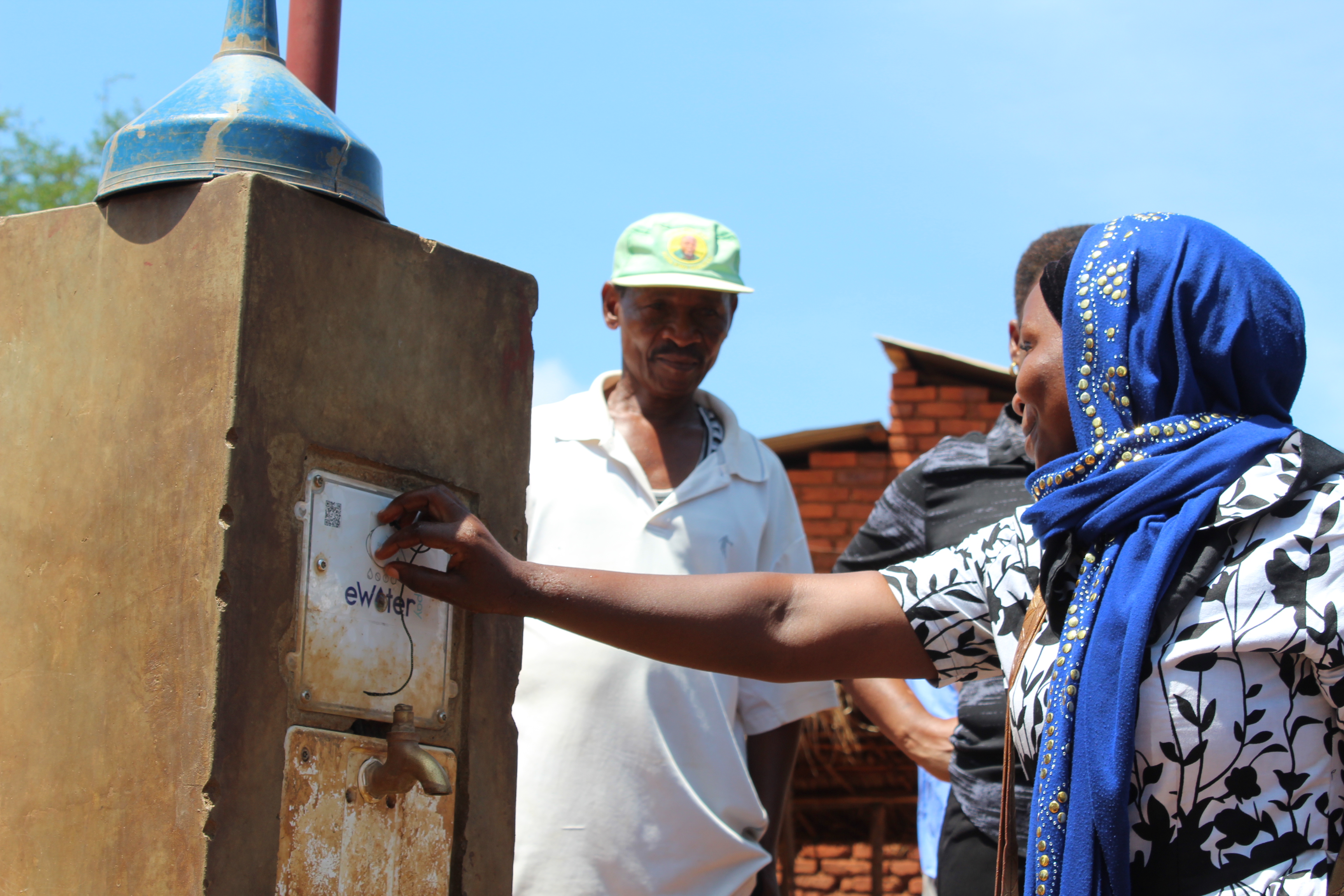
Member Spotlight:
Harnessing the Digital Cloud: Pre-paid Meters Increase Water Access in Tanzania
July 14, 2020 | By Alice Urban and Margaret Chandler, Tetra Tech

In an age where mobile phone services call rides, deliver take-out, and track steps walked, the international development sector is tapping into this technology to improve basic water service delivery. In Tanzania, Tetra Tech and Resonance are partnering to implement the USAID-funded Water Resources Integration Development Initiative (WARIDI) and harnessing the digital cloud to ensure reliable, affordable water is available to approximately 23,000 people.
SERVICE DELIVERY INEQUITY
The global community has invested billions of dollars in water infrastructure in developing countries. According to United Kingdom-based social enterprise eWaterPay, nearly 40 percent of these water systems fail within two years of installation and do not get fixed. Pumps break down, pipes split, tap heads snap off standpipes, and water leakages waste this precious resource. Most often, these issues are exacerbated by the inability of water service providers and operators to pay for and carry out maintenance of installed systems.
According to a 2016 report by Afrobarometer—a pan-African research network that explored access to basic services and infrastructure in 35 African countries—only 63% of Africans had access to piped water, while 93% had access to cell phone service. To leverage high rates of mobile phone use and to address the need for improved drinking water services, eWaterPay developed a system to collect and track water revenues to support sustainable investment in water infrastructure in sub-Saharan Africa.
CREATIVE, SCALABLE TECHNOLOGY SOLUTIONS
Founded in 2015 and working primarily in Sub-Saharan Africa, eWaterPay is a pre-payment water dispenser program that uses the “Internet of Things,” a network of devices that “talk” to each other to accomplish tasks and produce data. Combined with Near Field Communication short-range wireless technology, mobile money, cloud-based data analytics, and the widespread accessibility of mobile phones, this technology allows eWaterPay to provide 24/7 accessibility to clean water in communities that need it most.
The eWaterPay system operates using a solar-powered digital water meter on each public tap. Users activate the tap with their pre-paid eWater tag, a small key-fob like device. The tag stores water credit, which uses Near Field Communication technology to log transactions against a user’s balance on a cloud-based data platform. When a water user has credit in their account, they simply tap the tag to the eWater dispenser to collect water, and the cost of the water is deducted from the account balance. Water users need no longer wait for an attendant to unlock the tap—increasing availability from 10-12 hours to 24 hour access. The system requires very low bandwidth to operate, so it works even in areas with poor connectivity.
Users purchase water credits though their mobile money accounts or by paying cash to a water agent. The agent transfers credits to the user’s account, which is then stored on the eWater tag. Water agents can sell credit offline using their mobile device—which is also equipped with Near Field Communication technology to communicate with the eWater tags—and upload their transaction data when they return to areas with better network coverage. Agents receive a small percentage of water revenues, and the rest of the revenues are deposited directly into the water operator’s bank account.
eWaterPay also provides water operators with a digital dashboard that captures and processes real-time data on volume of water sold, revenue collected, number of users at each water point, and any detected leaks or malfunctions in the water system. To date, eWaterPay has provided “affordable, trackable water on tap” to more than 69,000 customers in Gambia, Ghana, and Tanzania.
BRINGING EWATERPAY TO TANZANIA
The USAID-funded WARIDI project supports water resources management, water service access, and climate change adaptation in Tanzania. Water service provision is a significant component and WARIDI is constructing and rehabilitating 50 water systems that will supply water to more than 520,000 Tanzanians using traditional and innovative technologies.
WARIDI, led by Tetra Tech and with private sector engagement support from Resonance, installed a water distribution system in Kilosa District in 2019. Before eWaterPay, an attendant managed each of the taps, unlocking them during the day and ensuring that water users paid in cash. In other words, users could only collect water when the attendant was available. Furthermore, with a high number of small value transactions, it was easy for some payments to be misplaced and never reach the town’s community-owned water supply organization, which manages funds earmarked for maintenance and expansion of the water system.
To improve this system, WARIDI piloted eWaterPay two service areas. The team identified villages that had the desire for the new technology and the human resources available to effectively maintain it once installed. Working with local authorities, the project facilitated negotiations to establish fair pricing levels and conducted community outreach and awareness activities. This included demonstrating how to use the new eWaterPay tags, how to purchase credit, and for the water supply organization, how to manage the online eWaterPay data dashboard. In total, WARIDI has coordinated the installation of pre-paid water meters in 46 public water taps with eWaterPay.
Three months after installation, eWaterPay was already showing impressive results in Msowero, one of the pilot villages. Water users were pleased to have continuous access to water any time they need it, and monthly water revenue had increased significantly.
“We like the eWaterPay system," said one user in Kilosa District. "Now we don’t have to wait for a water attendant, we can collect water any time we want.”
TESTING AND SCALING UP
Resonance completed an evaluation of the eWaterPay pilot in 2019 that looked at the experience of two community-owned water supply organizations. One organization operated a newly-constructed water system and saw strong positive results: monthly revenue increased by 15%, and 97% of customers were satisfied with the eWaterPay service. The other organization operated an older water system that had preexisting challenges. In this service area, user satisfaction was 77% and revenue actually decreased during this time, as the water old system required water rationing. For both systems, water access increased to 24 hours a day with reduced wait times at functioning water taps.
These results demonstrate that to maximize eWaterPay’s effectiveness, communities need to first ensure that the water supply is stable, and the system can produce sufficient water pressure to operate eWaterPay meters. Another challenge is identifying sustainable, affordable ways for communities to install the eWaterPay system when not partnering with a donor organization. These lessons will help strengthen eWaterPay’s product as they continue to scale up across Tanzania.
Overall, the eWaterPay system builds the capacity of water service organizations to more effectively manage community water supply through reduced costs, enhanced revenues, and improved information related to the functionality of water systems. Selecting the right water system applications and ensuring the community sufficiently understands the technology are critical to community acceptance and sustainability, too. While WARIDI and eWaterPay are co-financing the initial pilot installations, water supply organization clients will pay a monthly fee based on local water revenues to maintain the service. In this way, the WARIDI-eWaterPay partnership will promote, test, and scale a technology that enhances the management and self-reliance of community water authorities.
This story originally appeared on Tetra Tech’s Exposure site here: https://tetratechintdev.exposure.co/harnessing-the-digital-cloud
Tetra Tech International Development Services works with beneficiaries around the globe to identify technologies that solve real world problems. Technologies—both tried and true as well as cutting edge—help connect people, build relationships, and increase access to vital information and services. This is part of a series that explores how Tetra Tech uses technology to help communities make data-driven decisions, strengthen value chains, improve access to land and clean water, increase economic growth, strengthen agricultural economies, and govern effectively.